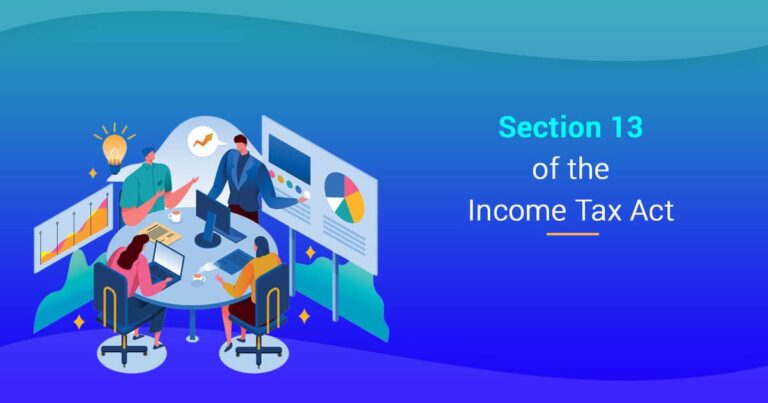Comprehensive Guide to Section 10(23G) of the Income Tax Act
Understanding Section 10(23G) of the Income Tax Act
Section 10(23G) of the Income Tax Act is a crucial provision that offers tax exemptions to certain types of income for infrastructure capital companies and funds. This section aims to encourage investment in infrastructure by providing tax benefits to entities that finance such projects.
Key Definitions under Section 10(23G)
1. Infrastructure Capital Company:
An infrastructure capital company is a company that invests by acquiring shares or providing long-term finance to enterprises wholly engaged in infrastructure businesses. These companies play a pivotal role in the development of infrastructure by channeling funds into critical projects.
2. Infrastructure Capital Fund:
This refers to a trust registered under the Registration Act, 1908, established to raise money for investment. These funds are utilized for acquiring shares or providing long-term finance to enterprises engaged in infrastructure projects.
3. Long-term Finance:
Long-term finance is defined under clause (viii) of sub-section (1) of section 36. It generally refers to finance provided for a period extending beyond five years.
Tax Exemptions under Section 10(23G)
1. Types of Income Exempted:
-
- The following types of income are exempt from being included in the total income of infrastructure capital companies or funds:
-
- Dividends (other than dividends referred to in section 115-0).
-
- Interest.
-
- Long-term capital gains.
-
- The following types of income are exempt from being included in the total income of infrastructure capital companies or funds:
-
- These exemptions apply to income derived from investments made before June 1, 1998, in enterprises involved in developing, maintaining, and operating infrastructure facilities.
Specific Terms and Their Implications
1. Interest:
For the purpose of this exemption, interest includes any fee or commission received by a financial institution for providing guarantees or credit enhancements for enterprises approved by the Central Government.
2. Hotel Project:
A project aimed at constructing a hotel with at least a three-star rating, as classified by the Central Government, is eligible for this exemption.
3. Hospital Project:
A project aimed at constructing a hospital with at least one hundred beds is also eligible for the exemption.

Explanation and Clarifications
1. Grandfathering Provision:
Any income by way of dividends, interest, or long-term capital gains from investments made before June 1, 1998, in infrastructure projects is exempt from tax. The provisions of this clause as they stood before the amendment by the Finance (No. 2) Act, 1998, continue to apply to such income.
Types of Infrastructure Projects Eligible for Exemption
The infrastructure projects that qualify for the exemption under Section 10(23G) include:
Public Facilities:
-
- Roads, highways, bridges, airports, ports, rail systems, or any other public facility notified by the Board.
-
- These projects must fulfill the conditions specified in sub-section (4A) of section 80-IA.
Water Supply and Sanitation Projects:
Projects related to water supply, irrigation, sanitation, and sewerage systems.
Power Generation Projects:
Projects for the generation or generation and distribution of electricity or any other form of power starting on or after April 1, 1993.
Telecommunication Projects:
Projects providing telecommunication services on or after April 1, 1995.
Benefits of Section 10(23G)
The tax exemptions under Section 10(23G) provide significant incentives for companies and funds to invest in infrastructure projects. These benefits not only reduce the tax liability of such entities but also contribute to the development of critical infrastructure in the country.
Frequently Asked Questions (FAQs)
1. What is Section 10(23G) of the Income Tax Act?
Section 10(23G) provides tax exemptions for certain types of income for infrastructure capital companies and funds, encouraging investment in infrastructure projects.
2. Who qualifies for the tax exemptions under Section 10(23G)?
Infrastructure capital companies and funds that invest in enterprises engaged in infrastructure development before June 1, 1998, qualify for the exemptions.
3. What types of income are exempt under Section 10(23G)?
Dividends (excluding dividends referred to in section 115-0), interest, and long-term capital gains are exempt from total income under this section.
4. What types of projects are eligible for the exemptions under Section 10(23G)?
Eligible projects include public facilities like roads and bridges, water supply and sanitation projects, power generation projects, and telecommunication services.
5. What is the significance of the June 1, 1998, date mentioned in Section 10(23G)?
Investments made before June 1, 1998, continue to benefit from the tax exemptions under the provisions as they stood before the amendment by the Finance (No. 2) Act, 1998.
Conclusion
Section 10(23G) of the Income Tax Act is a vital provision that encourages investment in infrastructure by offering tax exemptions to specific types of income for infrastructure capital companies and funds. Understanding and leveraging these benefits can significantly impact the financial planning and investment strategies of entities involved in infrastructure development.
By providing a clear understanding of the definitions, exemptions, and eligible projects under Section 10(23G), this guide aims to help companies and investors make informed decisions and take full advantage of the available tax benefits.
For more insightful articles on tax laws and investment strategies, visit Smart Tax Saver and stay updated with the latest in tax-saving opportunities.




